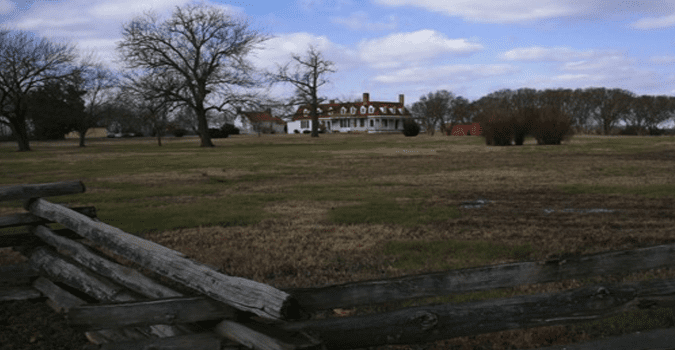The last several weeks of Abraham Lincoln’s life, before his death on April 15, 1865, were a flurry of activity, including visits to Hopewell, Petersburg, and Richmond, Virginia, working towards a negotiated settlement of the war even as the Federal troops were pushing General Robert E. Lee towards surrender at Appomattox Courthouse.

In his second inaugural address, on March 4, 1865, President Lincoln said, “…let us strive to finish the work we are in, to bind up the nation’s wounds, to care for him who shall have borne the battle and for his widow and his orphan, to do all which may achieve and cherish a just and lasting peace among ourselves and with all nations.” Two days before, he had issued instructions to General Ulysses S. Grant, giving Grant broad powers to negotiate military terms in surrender discussions, but reserving decisions on political matters to himself.
In the last week of March he traveled to Gen. Grant’s winter headquarters at City Point, where the James River and Appomattox River converge in modern-day Hopewell. On March 27, President Lincoln held a council of war with Gen. Grant, Gen. William Tecumseh Sherman, and Admiral David Porter on the River Queen at City Point, with the Federal troops finally pushing to cut off Confederate supplies to nearby Petersburg and Richmond.
Less than a week later, the long “Siege of Petersburg” finally broke the Confederate army. Petersburg fell and Richmond was evacuated, with President Jefferson Davis, his cabinet, and Confederate soldiers fleeing south on the last open rail line, between Richmond and Danville. On April 3, President Lincoln visited Petersburg and wept when he saw the fallen troops at Fort Mahone. The next day, he entered the burned out capital, where he was mobbed by jubilant crowds of former slaves. With some difficulty he made his way to the new U.S. military headquarters at Davis’ former Confederate White House. He engaged in discussions with a delegation of Southerners about how to bring the war to a peaceful end, and left Richmond the next day to return to Petersburg. He then spent a day at a field hospital in Chesterfield County before heading back to Washington, knowing that the end of the war was near.
While the president was en route on April 9, General Lee surrendered to General Grant at Appomattox. Five days later Lincoln was shot by John Wilkes Booth at Ford’s Theater. He died the next day, April 15, 1865.
HUSH’D BE THE CAMPS TODAY
by Walt Whitman
Hush’d be the camps today,
And soldiers let us drape our war-worn weapons,
And each with musing soul retire to celebrate,
Our dear commander’s death.
No more for him life’s stormy conflicts,
Nor victory, nor defeat—no more time’s dark events,
Charging like ceaseless clouds across the sky.
But sing poet in our name,
Sing of the love we bore him-because you—dweller in camps, know it truly.
As they invault the coffin there,
Sing—as they close the doors of earth upon him—one verse,
For the heavy hearts of soldiers.